- Industrial Hemp Market By Application (USD Billion, 2019-2035)
- Textiles
- Construction
- Food Beverages
- Personal Care
- Automotive
- Industrial Hemp Market By Product Type (USD Billion, 2019-2035)
- Hemp Seeds
- Hemp Oil
- Hemp Fiber
- Hemp Hurds
- Industrial Hemp Market By End Use (USD Billion, 2019-2035)
- Food Industry
- Pharmaceuticals
- Cosmetics
- Biofuels
- Industrial Hemp Market By Distribution Channel (USD Billion, 2019-2035)
- Industrial Hemp Market By Regional (USD Billion, 2019-2035)
- North America
- Europe
- South America
- Asia Pacific
- Middle East and Africa
North America Outlook (USD Billion, 2019-2035)
North America Industrial Hemp Market by Application Type
Textiles
Construction
Food Beverages
Personal Care
Automotive
North America Industrial Hemp Market by Product Type
Hemp Seeds
Hemp Oil
Hemp Fiber
Hemp Hurds
North America Industrial Hemp Market by End Use Type
Food Industry
Pharmaceuticals
Cosmetics
Biofuels
North America Industrial Hemp Market by Distribution Channel Type
Online
Retail
Wholesale
North America Industrial Hemp Market by Regional Type
US
Canada
US Outlook (USD Billion, 2019-2035)
US Industrial Hemp Market by Application Type
Textiles
Construction
Food Beverages
Personal Care
Automotive
US Industrial Hemp Market by Product Type
Hemp Seeds
Hemp Oil
Hemp Fiber
Hemp Hurds
US Industrial Hemp Market by End Use Type
Food Industry
Pharmaceuticals
Cosmetics
Biofuels
US Industrial Hemp Market by Distribution Channel Type
Online
Retail
Wholesale
CANADA Outlook (USD Billion, 2019-2035)
CANADA Industrial Hemp Market by Application Type
Textiles
Construction
Food Beverages
Personal Care
Automotive
CANADA Industrial Hemp Market by Product Type
Hemp Seeds
Hemp Oil
Hemp Fiber
Hemp Hurds
CANADA Industrial Hemp Market by End Use Type
Food Industry
Pharmaceuticals
Cosmetics
Biofuels
CANADA Industrial Hemp Market by Distribution Channel Type
Online
Retail
Wholesale
Europe Outlook (USD Billion, 2019-2035)
Europe Industrial Hemp Market by Application Type
Textiles
Construction
Food Beverages
Personal Care
Automotive
Europe Industrial Hemp Market by Product Type
Hemp Seeds
Hemp Oil
Hemp Fiber
Hemp Hurds
Europe Industrial Hemp Market by End Use Type
Food Industry
Pharmaceuticals
Cosmetics
Biofuels
Europe Industrial Hemp Market by Distribution Channel Type
Online
Retail
Wholesale
Europe Industrial Hemp Market by Regional Type
Germany
UK
France
Russia
Italy
Spain
Rest of Europe
GERMANY Outlook (USD Billion, 2019-2035)
GERMANY Industrial Hemp Market by Application Type
Textiles
Construction
Food Beverages
Personal Care
Automotive
GERMANY Industrial Hemp Market by Product Type
Hemp Seeds
Hemp Oil
Hemp Fiber
Hemp Hurds
GERMANY Industrial Hemp Market by End Use Type
Food Industry
Pharmaceuticals
Cosmetics
Biofuels
GERMANY Industrial Hemp Market by Distribution Channel Type
Online
Retail
Wholesale
UK Outlook (USD Billion, 2019-2035)
UK Industrial Hemp Market by Application Type
Textiles
Construction
Food Beverages
Personal Care
Automotive
UK Industrial Hemp Market by Product Type
Hemp Seeds
Hemp Oil
Hemp Fiber
Hemp Hurds
UK Industrial Hemp Market by End Use Type
Food Industry
Pharmaceuticals
Cosmetics
Biofuels
UK Industrial Hemp Market by Distribution Channel Type
Online
Retail
Wholesale
FRANCE Outlook (USD Billion, 2019-2035)
FRANCE Industrial Hemp Market by Application Type
Textiles
Construction
Food Beverages
Personal Care
Automotive
FRANCE Industrial Hemp Market by Product Type
Hemp Seeds
Hemp Oil
Hemp Fiber
Hemp Hurds
FRANCE Industrial Hemp Market by End Use Type
Food Industry
Pharmaceuticals
Cosmetics
Biofuels
FRANCE Industrial Hemp Market by Distribution Channel Type
Online
Retail
Wholesale
RUSSIA Outlook (USD Billion, 2019-2035)
RUSSIA Industrial Hemp Market by Application Type
Textiles
Construction
Food Beverages
Personal Care
Automotive
RUSSIA Industrial Hemp Market by Product Type
Hemp Seeds
Hemp Oil
Hemp Fiber
Hemp Hurds
RUSSIA Industrial Hemp Market by End Use Type
Food Industry
Pharmaceuticals
Cosmetics
Biofuels
RUSSIA Industrial Hemp Market by Distribution Channel Type
Online
Retail
Wholesale
ITALY Outlook (USD Billion, 2019-2035)
ITALY Industrial Hemp Market by Application Type
Textiles
Construction
Food Beverages
Personal Care
Automotive
ITALY Industrial Hemp Market by Product Type
Hemp Seeds
Hemp Oil
Hemp Fiber
Hemp Hurds
ITALY Industrial Hemp Market by End Use Type
Food Industry
Pharmaceuticals
Cosmetics
Biofuels
ITALY Industrial Hemp Market by Distribution Channel Type
Online
Retail
Wholesale
SPAIN Outlook (USD Billion, 2019-2035)
SPAIN Industrial Hemp Market by Application Type
Textiles
Construction
Food Beverages
Personal Care
Automotive
SPAIN Industrial Hemp Market by Product Type
Hemp Seeds
Hemp Oil
Hemp Fiber
Hemp Hurds
SPAIN Industrial Hemp Market by End Use Type
Food Industry
Pharmaceuticals
Cosmetics
Biofuels
SPAIN Industrial Hemp Market by Distribution Channel Type
Online
Retail
Wholesale
REST OF EUROPE Outlook (USD Billion, 2019-2035)
REST OF EUROPE Industrial Hemp Market by Application Type
Textiles
Construction
Food Beverages
Personal Care
Automotive
REST OF EUROPE Industrial Hemp Market by Product Type
Hemp Seeds
Hemp Oil
Hemp Fiber
Hemp Hurds
REST OF EUROPE Industrial Hemp Market by End Use Type
Food Industry
Pharmaceuticals
Cosmetics
Biofuels
REST OF EUROPE Industrial Hemp Market by Distribution Channel Type
Online
Retail
Wholesale
APAC Outlook (USD Billion, 2019-2035)
APAC Industrial Hemp Market by Application Type
Textiles
Construction
Food Beverages
Personal Care
Automotive
APAC Industrial Hemp Market by Product Type
Hemp Seeds
Hemp Oil
Hemp Fiber
Hemp Hurds
APAC Industrial Hemp Market by End Use Type
Food Industry
Pharmaceuticals
Cosmetics
Biofuels
APAC Industrial Hemp Market by Distribution Channel Type
Online
Retail
Wholesale
APAC Industrial Hemp Market by Regional Type
China
India
Japan
South Korea
Malaysia
Thailand
Indonesia
Rest of APAC
CHINA Outlook (USD Billion, 2019-2035)
CHINA Industrial Hemp Market by Application Type
Textiles
Construction
Food Beverages
Personal Care
Automotive
CHINA Industrial Hemp Market by Product Type
Hemp Seeds
Hemp Oil
Hemp Fiber
Hemp Hurds
CHINA Industrial Hemp Market by End Use Type
Food Industry
Pharmaceuticals
Cosmetics
Biofuels
CHINA Industrial Hemp Market by Distribution Channel Type
Online
Retail
Wholesale
INDIA Outlook (USD Billion, 2019-2035)
INDIA Industrial Hemp Market by Application Type
Textiles
Construction
Food Beverages
Personal Care
Automotive
INDIA Industrial Hemp Market by Product Type
Hemp Seeds
Hemp Oil
Hemp Fiber
Hemp Hurds
INDIA Industrial Hemp Market by End Use Type
Food Industry
Pharmaceuticals
Cosmetics
Biofuels
INDIA Industrial Hemp Market by Distribution Channel Type
Online
Retail
Wholesale
JAPAN Outlook (USD Billion, 2019-2035)
JAPAN Industrial Hemp Market by Application Type
Textiles
Construction
Food Beverages
Personal Care
Automotive
JAPAN Industrial Hemp Market by Product Type
Hemp Seeds
Hemp Oil
Hemp Fiber
Hemp Hurds
JAPAN Industrial Hemp Market by End Use Type
Food Industry
Pharmaceuticals
Cosmetics
Biofuels
JAPAN Industrial Hemp Market by Distribution Channel Type
Online
Retail
Wholesale
SOUTH KOREA Outlook (USD Billion, 2019-2035)
SOUTH KOREA Industrial Hemp Market by Application Type
Textiles
Construction
Food Beverages
Personal Care
Automotive
SOUTH KOREA Industrial Hemp Market by Product Type
Hemp Seeds
Hemp Oil
Hemp Fiber
Hemp Hurds
SOUTH KOREA Industrial Hemp Market by End Use Type
Food Industry
Pharmaceuticals
Cosmetics
Biofuels
SOUTH KOREA Industrial Hemp Market by Distribution Channel Type
Online
Retail
Wholesale
MALAYSIA Outlook (USD Billion, 2019-2035)
MALAYSIA Industrial Hemp Market by Application Type
Textiles
Construction
Food Beverages
Personal Care
Automotive
MALAYSIA Industrial Hemp Market by Product Type
Hemp Seeds
Hemp Oil
Hemp Fiber
Hemp Hurds
MALAYSIA Industrial Hemp Market by End Use Type
Food Industry
Pharmaceuticals
Cosmetics
Biofuels
MALAYSIA Industrial Hemp Market by Distribution Channel Type
Online
Retail
Wholesale
THAILAND Outlook (USD Billion, 2019-2035)
THAILAND Industrial Hemp Market by Application Type
Textiles
Construction
Food Beverages
Personal Care
Automotive
THAILAND Industrial Hemp Market by Product Type
Hemp Seeds
Hemp Oil
Hemp Fiber
Hemp Hurds
THAILAND Industrial Hemp Market by End Use Type
Food Industry
Pharmaceuticals
Cosmetics
Biofuels
THAILAND Industrial Hemp Market by Distribution Channel Type
Online
Retail
Wholesale
INDONESIA Outlook (USD Billion, 2019-2035)
INDONESIA Industrial Hemp Market by Application Type
Textiles
Construction
Food Beverages
Personal Care
Automotive
INDONESIA Industrial Hemp Market by Product Type
Hemp Seeds
Hemp Oil
Hemp Fiber
Hemp Hurds
INDONESIA Industrial Hemp Market by End Use Type
Food Industry
Pharmaceuticals
Cosmetics
Biofuels
INDONESIA Industrial Hemp Market by Distribution Channel Type
Online
Retail
Wholesale
REST OF APAC Outlook (USD Billion, 2019-2035)
REST OF APAC Industrial Hemp Market by Application Type
Textiles
Construction
Food Beverages
Personal Care
Automotive
REST OF APAC Industrial Hemp Market by Product Type
Hemp Seeds
Hemp Oil
Hemp Fiber
Hemp Hurds
REST OF APAC Industrial Hemp Market by End Use Type
Food Industry
Pharmaceuticals
Cosmetics
Biofuels
REST OF APAC Industrial Hemp Market by Distribution Channel Type
Online
Retail
Wholesale
South America Outlook (USD Billion, 2019-2035)
South America Industrial Hemp Market by Application Type
Textiles
Construction
Food Beverages
Personal Care
Automotive
South America Industrial Hemp Market by Product Type
Hemp Seeds
Hemp Oil
Hemp Fiber
Hemp Hurds
South America Industrial Hemp Market by End Use Type
Food Industry
Pharmaceuticals
Cosmetics
Biofuels
South America Industrial Hemp Market by Distribution Channel Type
Online
Retail
Wholesale
South America Industrial Hemp Market by Regional Type
Brazil
Mexico
Argentina
Rest of South America
BRAZIL Outlook (USD Billion, 2019-2035)
BRAZIL Industrial Hemp Market by Application Type
Textiles
Construction
Food Beverages
Personal Care
Automotive
BRAZIL Industrial Hemp Market by Product Type
Hemp Seeds
Hemp Oil
Hemp Fiber
Hemp Hurds
BRAZIL Industrial Hemp Market by End Use Type
Food Industry
Pharmaceuticals
Cosmetics
Biofuels
BRAZIL Industrial Hemp Market by Distribution Channel Type
Online
Retail
Wholesale
MEXICO Outlook (USD Billion, 2019-2035)
MEXICO Industrial Hemp Market by Application Type
Textiles
Construction
Food Beverages
Personal Care
Automotive
MEXICO Industrial Hemp Market by Product Type
Hemp Seeds
Hemp Oil
Hemp Fiber
Hemp Hurds
MEXICO Industrial Hemp Market by End Use Type
Food Industry
Pharmaceuticals
Cosmetics
Biofuels
MEXICO Industrial Hemp Market by Distribution Channel Type
Online
Retail
Wholesale
ARGENTINA Outlook (USD Billion, 2019-2035)
ARGENTINA Industrial Hemp Market by Application Type
Textiles
Construction
Food Beverages
Personal Care
Automotive
ARGENTINA Industrial Hemp Market by Product Type
Hemp Seeds
Hemp Oil
Hemp Fiber
Hemp Hurds
ARGENTINA Industrial Hemp Market by End Use Type
Food Industry
Pharmaceuticals
Cosmetics
Biofuels
ARGENTINA Industrial Hemp Market by Distribution Channel Type
Online
Retail
Wholesale
REST OF SOUTH AMERICA Outlook (USD Billion, 2019-2035)
REST OF SOUTH AMERICA Industrial Hemp Market by Application Type
Textiles
Construction
Food Beverages
Personal Care
Automotive
REST OF SOUTH AMERICA Industrial Hemp Market by Product Type
Hemp Seeds
Hemp Oil
Hemp Fiber
Hemp Hurds
REST OF SOUTH AMERICA Industrial Hemp Market by End Use Type
Food Industry
Pharmaceuticals
Cosmetics
Biofuels
REST OF SOUTH AMERICA Industrial Hemp Market by Distribution Channel Type
Online
Retail
Wholesale
MEA Outlook (USD Billion, 2019-2035)
MEA Industrial Hemp Market by Application Type
Textiles
Construction
Food Beverages
Personal Care
Automotive
MEA Industrial Hemp Market by Product Type
Hemp Seeds
Hemp Oil
Hemp Fiber
Hemp Hurds
MEA Industrial Hemp Market by End Use Type
Food Industry
Pharmaceuticals
Cosmetics
Biofuels
MEA Industrial Hemp Market by Distribution Channel Type
Online
Retail
Wholesale
MEA Industrial Hemp Market by Regional Type
GCC Countries
South Africa
Rest of MEA
GCC COUNTRIES Outlook (USD Billion, 2019-2035)
GCC COUNTRIES Industrial Hemp Market by Application Type
Textiles
Construction
Food Beverages
Personal Care
Automotive
GCC COUNTRIES Industrial Hemp Market by Product Type
Hemp Seeds
Hemp Oil
Hemp Fiber
Hemp Hurds
GCC COUNTRIES Industrial Hemp Market by End Use Type
Food Industry
Pharmaceuticals
Cosmetics
Biofuels
GCC COUNTRIES Industrial Hemp Market by Distribution Channel Type
Online
Retail
Wholesale
SOUTH AFRICA Outlook (USD Billion, 2019-2035)
SOUTH AFRICA Industrial Hemp Market by Application Type
Textiles
Construction
Food Beverages
Personal Care
Automotive
SOUTH AFRICA Industrial Hemp Market by Product Type
Hemp Seeds
Hemp Oil
Hemp Fiber
Hemp Hurds
SOUTH AFRICA Industrial Hemp Market by End Use Type
Food Industry
Pharmaceuticals
Cosmetics
Biofuels
SOUTH AFRICA Industrial Hemp Market by Distribution Channel Type
Online
Retail
Wholesale
REST OF MEA Outlook (USD Billion, 2019-2035)
REST OF MEA Industrial Hemp Market by Application Type
Textiles
Construction
Food Beverages
Personal Care
Automotive
REST OF MEA Industrial Hemp Market by Product Type
Hemp Seeds
Hemp Oil
Hemp Fiber
Hemp Hurds
REST OF MEA Industrial Hemp Market by End Use Type
Food Industry
Pharmaceuticals
Cosmetics
Biofuels
REST OF MEA Industrial Hemp Market by Distribution Channel Type
Online
Retail
Wholesale
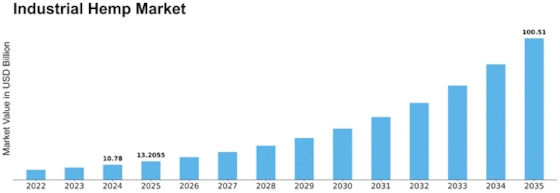


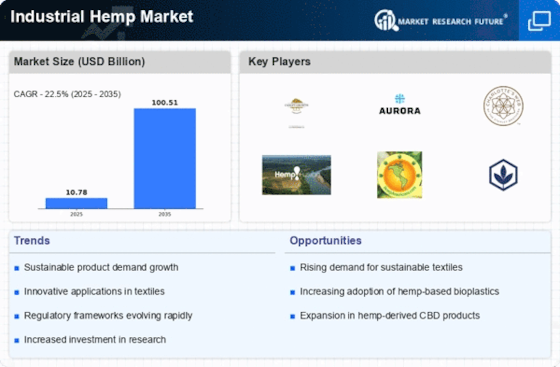
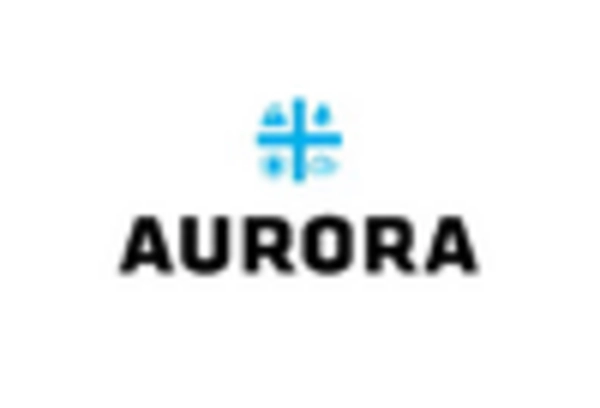
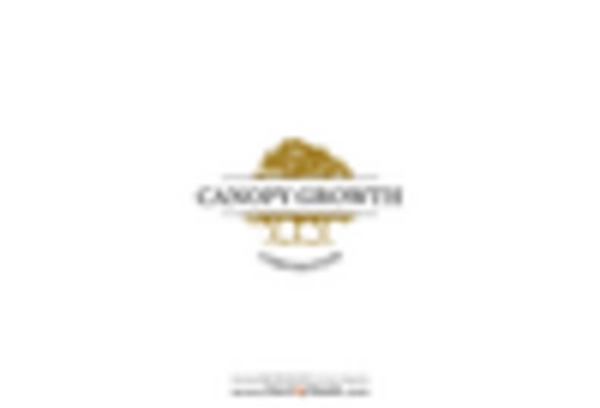
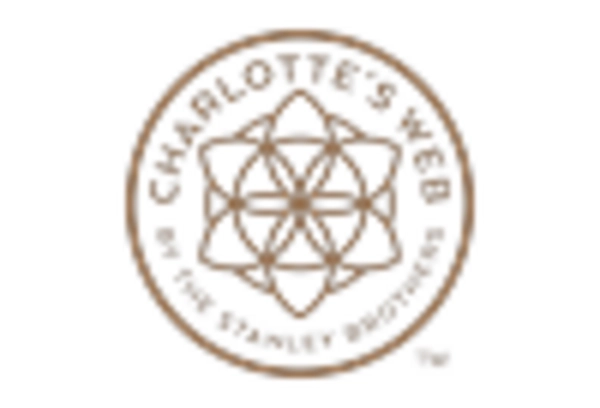
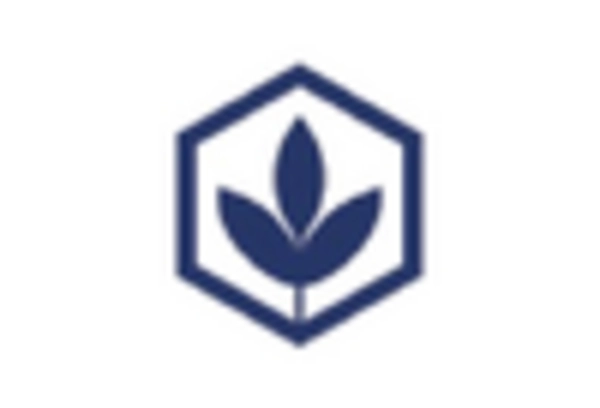

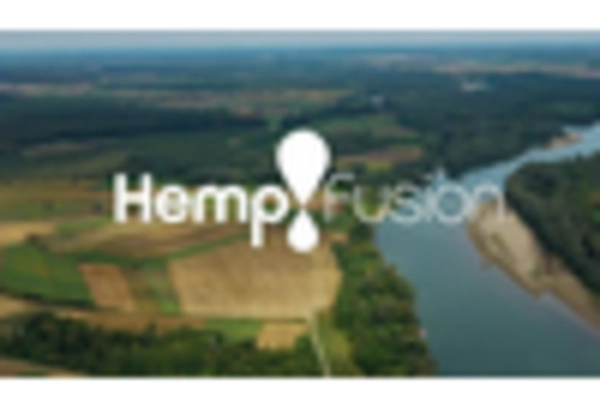









Leave a Comment